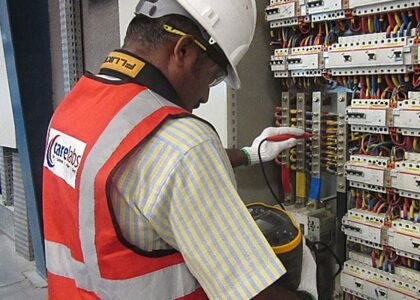The decision to seek help for trauma is often one of the bravest steps a person can take. Trauma, whether it stems from a single overwhelming event or years of chronic stress (C-PTSD), leaves a heavy mark on the mind and body. It can feel like carrying the weight of the past through the bustling streets of Toronto every day.
If you are beginning your healing journey here in the GTA, the sheer volume of choices can be paralyzing. This guide is designed to demystify the process of finding specialized trauma therapy Toronto, offering clarity, hope, and actionable steps toward recovery.
Why Specialized Trauma Therapy is Essential
When we talk about healing from trauma, we aren’t just talking about processing feelings; we are talking about reprocessing memory and regulating the nervous system.
Standard talk therapy (or general counseling) can be helpful for everyday stress, but trauma requires specific specialized techniques. Traumatic memory is stored differently—often as sensory fragments, physical reactions, or intense emotional flashbacks—not as a cohesive story that can simply be talked through.
A trauma-informed therapist understands that symptoms like chronic anxiety, avoidance, sudden rage, or dissociation are not flaws; they are brilliant survival strategies the brain developed to cope with an impossible situation. Specialized therapy aims to gently re-train the nervous system to feel safe in the present.
The Trauma Therapy Toolkit: Key Modalities Available in Toronto
Toronto is home to many world-class practitioners using evidence-based modalities designed specifically for trauma resolution. As you search, you will frequently see these terms:
1. EMDR (Eye Movement Desensitization and Reprocessing)
EMDR is one of the most widely recognized and effective treatments for PTSD. It involves recalling distressing memories while using bilateral stimulation (often controlled eye movements). This process helps the brain reprocess the memory, moving it from the emotional, “stuck” part of the brain to the logical, narrative part. The goal is that the memory no longer holds the same intense, emotional charge.
2. Somatic Experiencing (SE)
Developed by Dr. Peter Levine, SE is fundamentally about the body. Trauma often gets “frozen” in the body, leading to chronic tension, numbness, or quick overreactions (fight, flight, freeze). SE therapists encourage clients to track physical sensations and safe physiological releases (like trembling or yawning) to discharge trapped energy, helping the nervous system return to a natural state of flow and equilibrium.
3. Internal Family Systems (IFS)
IFS views the mind as being made up of various “parts”—for example, a “critic part,” a “child part,” or a “protector part.” Trauma therapy using IFS focuses on accessing the core self (which is always calm, curious, and compassionate) to heal the wounded parts, rather than trying to suppress or eliminate the difficult feelings. This is especially effective for Complex PTSD (C-PTSD) and relational trauma.
4. Trauma-Focused Cognitive Behavioral Therapy (TF-CBT)
While traditional CBT focuses on changing thought patterns, TF-CBT is adapted for trauma and often includes components like skills training, relaxation techniques, and gradual exposure to trauma narratives in a safe, controlled environment. It is particularly effective for adolescents and those needing structured coping skills.
Practical Steps to Finding Your Therapist in the GTA
Starting the search in a massive city like Toronto can be overwhelming. Here is how to narrow down your options efficiently.
1. Utilize Specialized Directories
Forget random Google searches. Start with platforms that allow detailed filtering:
- Psychology Today: Search by location (e.g., North York, Downtown, Etobicoke), insurance, and crucially, click the “Trauma and PTSD” specialization filter.
- EMDR Canada & Somatic Experiencing Canada: These directories list certified practitioners, ensuring your therapist has proper, advanced training in these modalities.
2. Consider Location and Accessibility
Toronto’s sprawling geography means logistics matter. Do you need a therapist close to transit (e.g., near the Yonge-University line) or one easily accessible by car in the surrounding 905 area (Mississauga, Vaughan)? Many Toronto therapists still offer secure virtual sessions, which can expand your options considerably.
3. Address the Financial Barrier
Therapy in Toronto is generally expensive, often ranging from $150–$250 per session for a specialist.
- Insurance/Benefits: Check if your workplace benefits cover a Registered Psychotherapist (RP), Registered Social Worker (RSW), or Psychologist (Psy.D/Ph.D.). RSWs are often covered by extended health plans and can sometimes be a more cost-effective option than Psychologists.
- Sliding Scales: Many excellent practitioners reserve a few spots for clients who require a reduced fee based on income. Don’t be afraid to ask during your consultation call.
- University Clinics: Clinics associated with universities (like the University of Toronto) sometimes offer reduced-cost therapy provided by supervised clinical interns.
4. Prioritize Cultural and Identity Safety
Trauma does not exist in a vacuum. If your experience of trauma is linked to identity, race, sexuality, or culture, finding a therapist who is culturally humble or shares lived experience can be profoundly helpful. Toronto’s diverse population provides opportunities to connect with practitioners who specialize in BIPOC mental health, 2SLGBTQIA+ issues, or immigrant experiences.
The Crucial Ingredient: Rapport and Safety
The specific technique your therapist uses is secondary to the relationship you build with them. Healing from trauma requires safety, and safety is built on trust.
During your initial consultation (most therapists offer a free 15–20 minute call), ask yourself:
- Do I feel seen and heard? Did they listen without minimizing my pain?
- Do they understand trauma? Did they explain (in simple terms) how they approach reprocessing and regulation?
- Do I feel like this person can handle my full story? Healing can be messy. You need a therapist who projects reliability and calmness.
You are interviewing them just as much as they are assessing your needs. If the fit doesn’t feel right after a few sessions, it is absolutely okay to seek someone new. Finding the right connection is essential for truly successful trauma work.
A Final Word of Encouragement
Starting trauma therapy is not a sign of brokenness; it’s a profound act of self-love and resilience. The work ahead requires courage, but it promises a future where you are no longer defined by what happened to you.
Toronto is full of dedicated professionals ready to guide you. Take that first step—make the call, send the email—and begin finding your way back to yourself.






